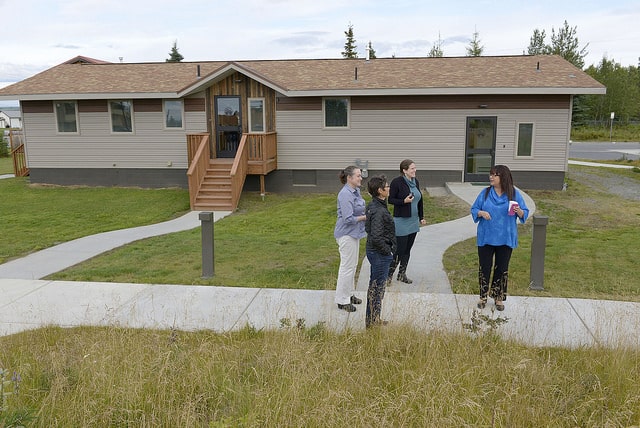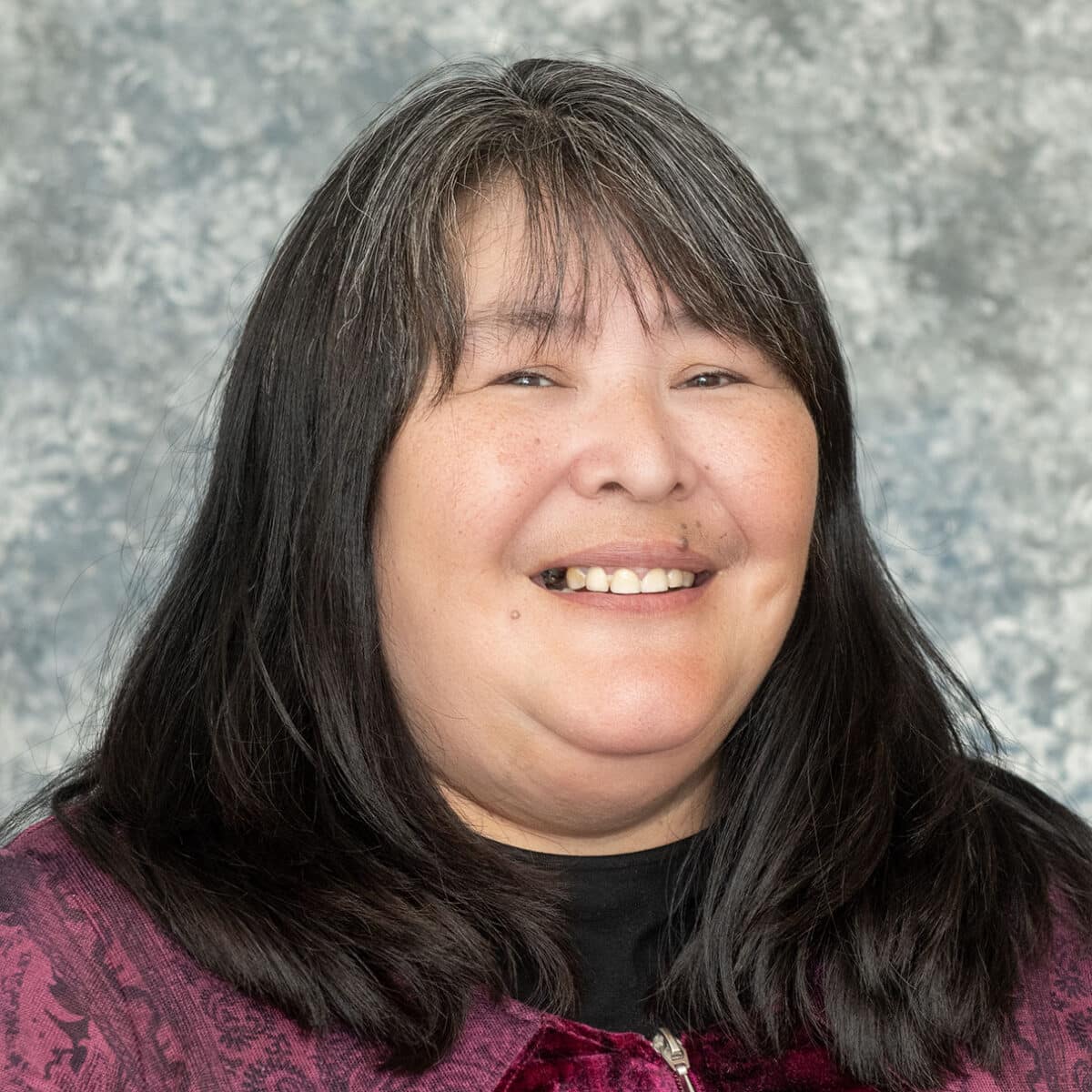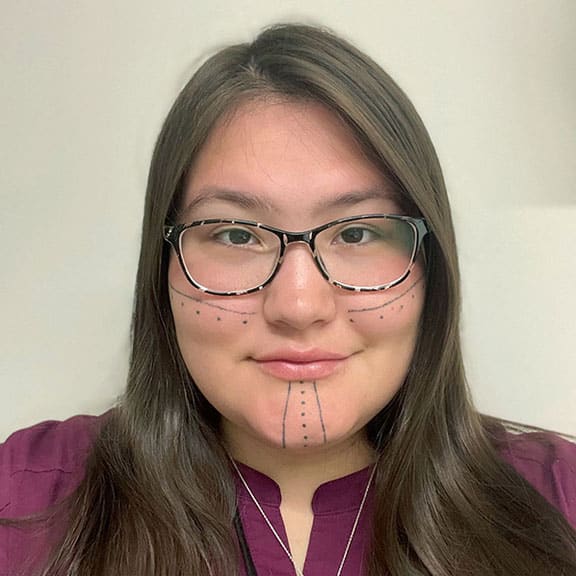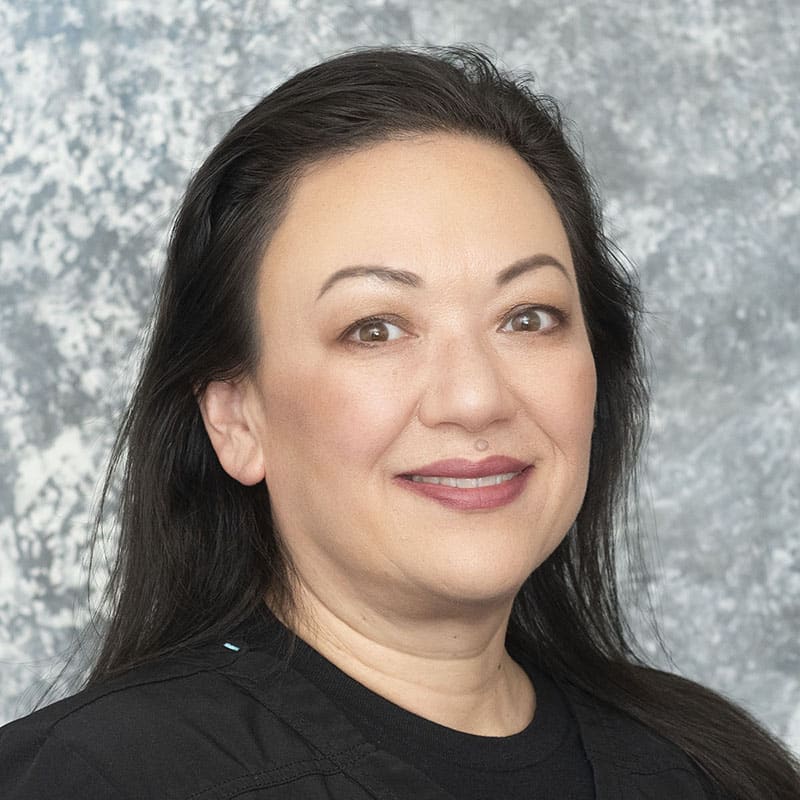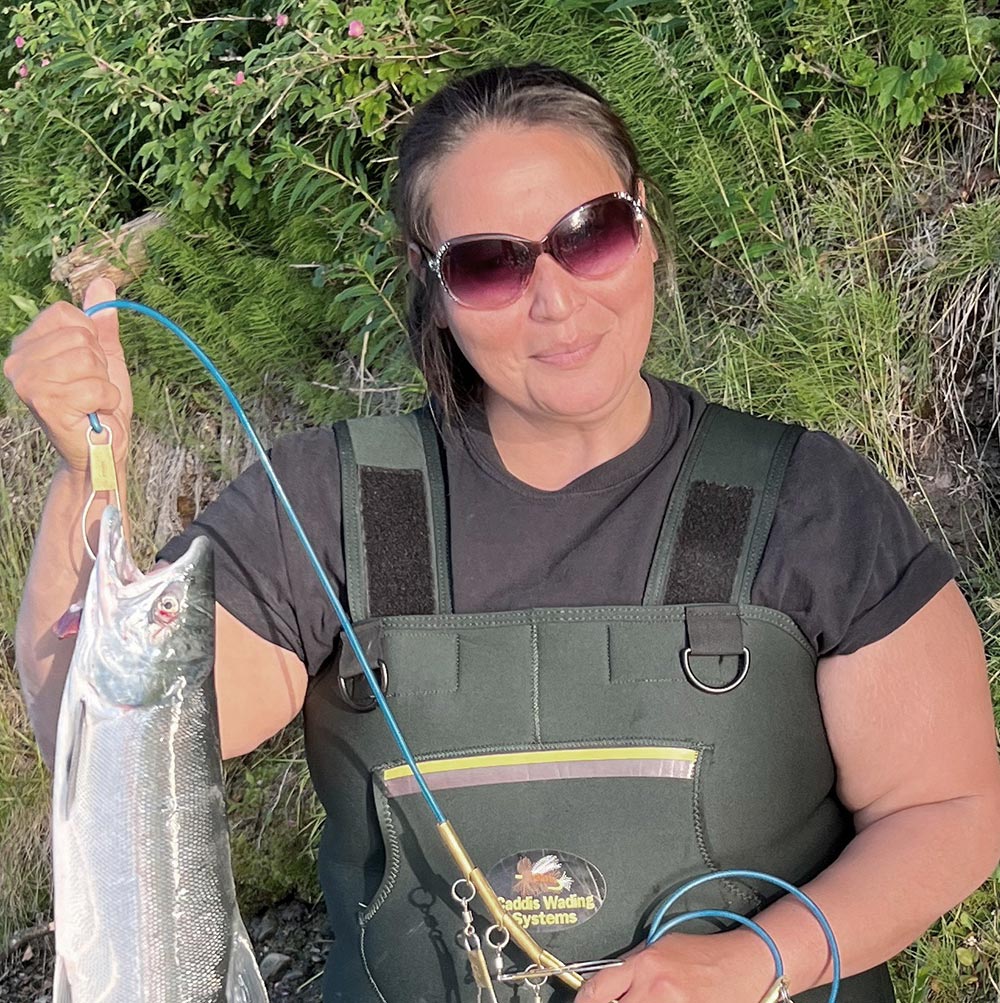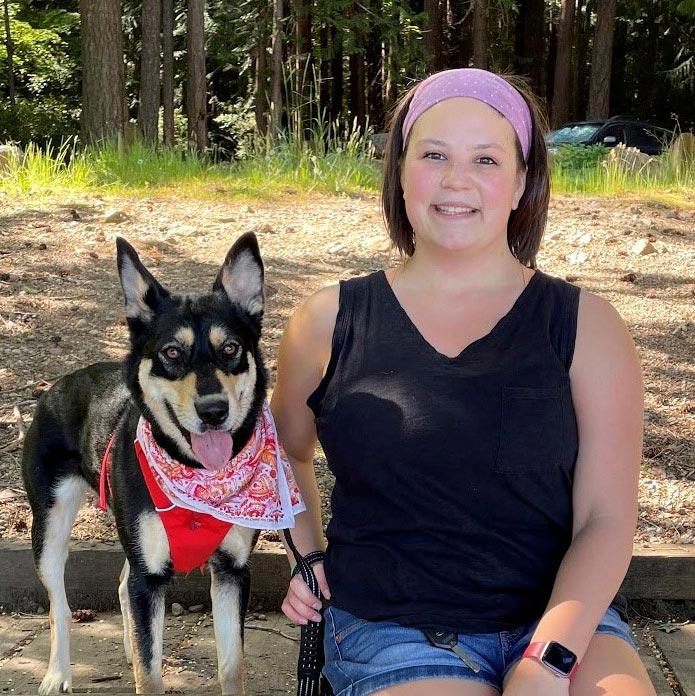Harvard University – yes, that Harvard – has taken notice of the Kenaitze Indian Tribe
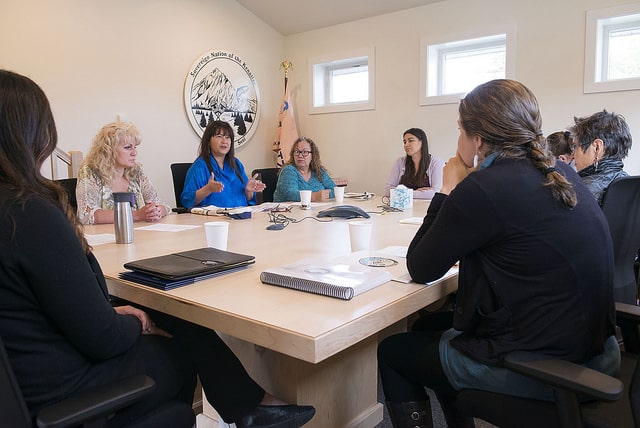
Kenaitze Chief Judge Kim Sweet, Executive Director Jaylene Peterson-Nyren, Executive Council Chairperson Rosalie A. Tepp and CASA Coordinator Thia Peters talk with visitors in the Keniatze Tribal Courtroom.
The Harvard Project on American Indian Economic Development recently named the tribe a winner of the 2015 Honoring Nations Award. One of six awardees nationwide, the tribe was recognized for its Tribal Court and Court Appointed Special Advocates Program – CASA.
In October, CASA program coordinator Thia Peters, Chief Judge Kim Sweet and former CASA program coordinator Joy Petrie attended the National Congress of American Indian’s 72nd Annual Convention in San Diego, where they accepted the award on behalf of the tribe.
“It was a really great experience,” Peters said. “It was amazing to watch Joy and Kim up there on stage. To be able to be part of that was amazing.”
To be eligible for an Honoring Nations award, tribal governance programs must be nominated and complete an application process. The 2015 award pool included 87 applicants before the field was ultimately narrowed to six.
The tribe learned that it had advanced to the final stage last summer. In August, Honoring Nations representatives made a site visit, touring tribal facilities and meeting tribal court employees. After the site visit, Honoring Nations invited the tribe to San Diego.
That’s where Peters, Sweet and Petrie accepted an “Honors” award on behalf of the tribe. Of the six finalists, three received “Honors” and three received “High Honors.”
Peters, who became the tribe’s CASA program coordinator in August, said the award is important to the tribe that it has already helped Tribal Court form new partnerships.
“We will always be part of Honoring Nations,” Peters said. “It’s been great to network and have other tribes reach out to us.”
The CASA program trains and appoints adult volunteers to represent children who have been removed from their homes because of abuse or neglect. The volunteers advocate for the child at court proceedings and work to ensure they are placed in safe homes.
Honoring Nations is administered by Harvard University and identifies, celebrates and shares exemplary programs in tribal governance. It judges programs on a range of criteria, including effectiveness, significance to sovereignty, cultural relevance, transferability, and sustainability.
Honoring Nations started in 1998 and has since recognized 124 tribal government programs from more than 80 tribal nations.
“The Honoring Nations awardees are exemplary models of success and by their best practices, all government – tribal and non-tribal alike – can benefit,” said Megan Minoka Hill, Honoring Nations Program Director.

